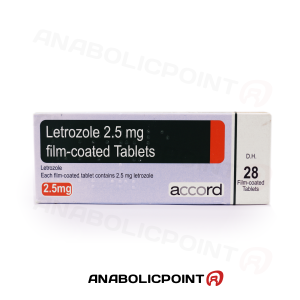Your basket is currently empty!
Insomnia Related to Anabolic Steroids: Causes, Effects, and Solutions
Anabolic steroids, synthetic derivatives of testosterone, are widely used for muscle building and enhancing athletic performance. While they offer certain physical benefits, their use often comes with numerous side effects, including mental and emotional disturbances. One of the most significant and under-discussed side effects is insomnia—difficulty in falling or staying asleep. Sleep disruptions can lead to a cascade of physical and psychological issues, amplifying the adverse effects of steroid use.
This article explores the connection between anabolic steroids and insomnia, examining the underlying causes, associated risks, and possible strategies for prevention and management.
What Are Anabolic Steroids?
Anabolic steroids are a class of drugs designed to mimic testosterone, the primary male sex hormone responsible for muscle growth, bone density, and secondary male characteristics. Athletes and bodybuilders often use these substances to accelerate muscle growth and improve physical performance. However, the misuse of anabolic steroids—taking them without medical supervision or in excessive doses—can lead to serious health concerns.
Steroids impact the body’s hormonal balance, and while their effects on muscles and strength are well-known, their influence on sleep and mental health is less discussed but equally important.
How Anabolic Steroids Cause Insomnia
Insomnia linked to anabolic steroids arises from the complex interactions between these drugs and the body’s hormonal, neurological, and physiological systems. Here are the key mechanisms through which anabolic steroids can disrupt sleep:
Hormonal Imbalances
- Elevated Cortisol Levels: Prolonged steroid use can suppress natural testosterone production and elevate cortisol, the stress hormone. High cortisol levels are associated with increased alertness and difficulty sleeping.
- Altered Circadian Rhythm: The body’s sleep-wake cycle, regulated by hormones like melatonin, can be disrupted by anabolic steroids, making it difficult to establish regular sleep patterns.
Neurological Effects
- Hyperarousal: Steroids can increase excitability in the central nervous system, leading to heightened alertness and restlessness. This hyperaroused state often prevents relaxation, which is essential for sleep.
- Mood Disorders: Anabolic steroids are known to contribute to anxiety, irritability, and even aggression (commonly referred to as “roid rage”). These psychological effects can make it difficult to wind down and sleep peacefully.
Physical Changes
- Increased Energy and Metabolism: Steroids enhance metabolism and energy levels, which may make users feel too energized to fall asleep, even at the end of the day.
- Pain and Discomfort: Rapid muscle growth or overtraining associated with steroid use can lead to physical discomfort, further interfering with sleep quality.
Effects of Insomnia Caused by Steroids
Sleep is a fundamental biological process essential for physical recovery, mental health, and overall well-being. Chronic insomnia caused by anabolic steroids can have widespread effects, including:
Physical Consequences
- Impaired Recovery: Sleep is critical for muscle repair and growth. Insufficient sleep reduces protein synthesis and slows recovery from workouts, negating the physical benefits of steroids.
- Weakened Immune System: Chronic sleep deprivation weakens the immune response, making users more susceptible to illnesses and infections.
- Cardiovascular Strain: Lack of sleep increases the risk of high blood pressure, irregular heart rhythms, and other cardiovascular issues, which are already elevated with steroid use.
Psychological Consequences
- Mood Disorders: Insomnia exacerbates anxiety, depression, and irritability, all of which may already be heightened by anabolic steroids.
- Cognitive Impairments: Poor sleep affects memory, concentration, and decision-making, impacting daily functioning and quality of life.
- Addictive Behaviors: Insomnia and mood instability can lead users to rely on additional substances like sleeping pills, alcohol, or more steroids, creating a cycle of dependency.
Identifying Insomnia Symptoms in Steroid Users
Recognizing insomnia early is crucial to mitigating its effects. Common symptoms include:
- Difficulty falling asleep despite feeling tired
- Frequent waking during the night
- Waking up too early and being unable to go back to sleep
- Feeling unrested or fatigued despite spending enough time in bed
- Increased irritability, anxiety, or mood swings during the day
- Reduced focus, productivity, and physical performance
If these symptoms persist during or after anabolic steroid use, it may indicate steroid-related insomnia.
Managing and Treating Insomnia Caused by Anabolic Steroids
Addressing insomnia requires a multifaceted approach that targets the root causes and promotes healthy sleep habits. Here are strategies for managing steroid-related sleep issues:
Reducing Steroid Use
The most effective way to resolve insomnia caused by anabolic steroids is to discontinue or reduce their use. Medical supervision is essential for safely tapering off steroids to minimize withdrawal symptoms.
Improving Sleep Hygiene
Adopting good sleep practices can significantly improve sleep quality. Key measures include:
- Consistent Sleep Schedule: Go to bed and wake up at the same time daily to regulate your circadian rhythm.
- Create a Relaxing Sleep Environment: Ensure the bedroom is dark, quiet, and cool, free of distractions like screens.
- Limit Stimulants: Avoid caffeine, nicotine, and heavy meals close to bedtime.
Psychological Support
Since anxiety and mood disturbances are common with steroid use, therapy or counseling can help address underlying psychological issues contributing to insomnia. Cognitive Behavioral Therapy for Insomnia (CBT-I) is particularly effective.
Medication and Supplements
- Melatonin: A natural sleep aid that helps regulate the sleep-wake cycle.
- Prescription Sleep Medications: In severe cases, a doctor may prescribe medications to manage insomnia, but these should be used sparingly to avoid dependency.
- Natural Remedies: Herbal supplements like valerian root or chamomile may promote relaxation and improve sleep.
Long-Term Implications and Recovery
Recovering from steroid-induced insomnia may take time, depending on the duration and intensity of steroid use. After discontinuing steroids, the body’s hormonal balance may gradually restore itself, improving sleep patterns. However, long-term users may require extended medical and psychological support to fully recover.
It’s also important to adopt a healthier approach to fitness and performance enhancement, emphasizing natural methods like balanced nutrition, proper training, and adequate rest.
Common Questions About Insomnia and Anabolic Steroids
1. Why do anabolic steroids cause insomnia?
Anabolic steroids disrupt the body’s hormonal balance, increase cortisol levels, and cause hyperarousal in the nervous system, all of which can interfere with sleep.
2. Can stopping steroids improve sleep?
Yes, discontinuing steroid use under medical supervision can help restore hormonal balance and improve sleep over time.
3. How long does steroid-induced insomnia last?
The duration of insomnia depends on the extent of steroid use. For some, it resolves in weeks after stopping; for others, it may persist for months.
4. Are sleeping pills safe for steroid users?
While sleeping pills can provide temporary relief, they should only be used under medical supervision to avoid dependency and interactions with steroids.
5. What are the long-term effects of insomnia from steroids?
Chronic insomnia can lead to mood disorders, impaired physical recovery, weakened immunity, and cardiovascular risks, compounding the negative effects of steroid use.
6. Can natural remedies help with steroid-related insomnia?
Yes, melatonin supplements, herbal teas, and relaxation techniques like meditation can support better sleep.
7. Does every steroid user experience insomnia?
No, insomnia varies among individuals and depends on factors like dosage, duration of use, and personal susceptibility to sleep disturbances.
8. Can insomnia be a withdrawal symptom from steroids?
Yes, insomnia is a common withdrawal symptom as the body adjusts to the absence of steroids and works to restore hormonal balance.
9. Does exercise help with insomnia caused by steroids?
Moderate exercise can promote better sleep, but excessive workouts, especially when combined with steroids, may worsen insomnia.
10. What is the best way to prevent insomnia while using steroids?
Limiting steroid use, maintaining a healthy sleep routine, and managing stress are essential to reducing the risk of insomnia.
Embracing a Healthier Sleep Routine
Steroid-induced insomnia is a significant issue that can undermine both physical and mental well-being. While anabolic steroids may offer short-term gains, their impact on sleep and overall health often outweighs the benefits. By addressing sleep disturbances early, reducing steroid use, and adopting healthier lifestyle habits, individuals can restore their sleep quality and achieve better long-term health outcomes.












